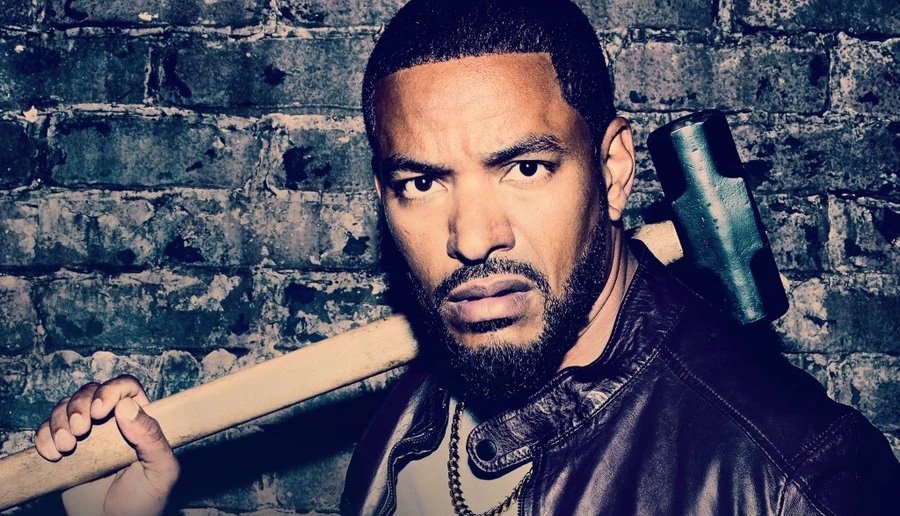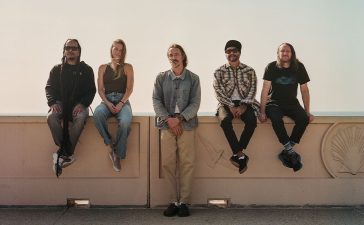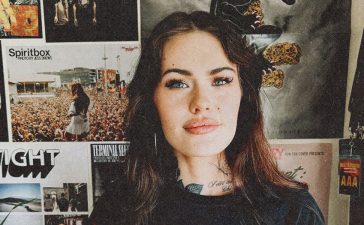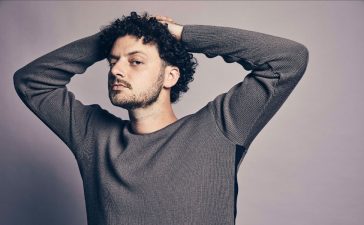In a world gone crazy for superheroes, Amazon Prime Video’s earth-shattering series The Boys is an exhilarating and interesting deviation from the norm.
Set in a world where superheroes have gone mad with power, the duty of care for unknowing every day citizens is reluctantly left in the hands of a rag-tag group of ne’er do wells: The Boys.
Though they may not be ‘Supes’ themselves (with the exception of Karen Fukuhara’s Kimiko), The Boys, populated by William Butcher (Karl Urban), Petite Hughie (Jack Quaid) and Frenchie (Tomer Kapon), it would be a misnomer to say that they don’t have superpowers given the edge that Mother’s Milk (Laz Alonso) gives the crew over their vastly overpowered rivals.
Mentally secure, emotionally intelligent, a great listener and a strong feeler, Mother’s Milk is a character quite unlike any that we’ve seen in the superhero milieu before.
Ahead of the season two finale, Blunt Magazine spoke with Laz Alonso to better understand how this came to be.
Alonso is no stranger to portraying strong, physically imposing roles based in conflict. He brought to life Tsu’tey, the formidable antagonist in James Cameron’s Avatar, and squared off against Dom Torello as Fenix Calderon, the main villain in Fast & The Furious. But what makes Mother’s Milk unique, not just to Alonso’s experience, but as an entity in pop culture, is that this character’s purpose is to be emotionally strong. “Out of all the Boys, he’s the smartest. He’s the moral centre; the moral core,” he says of the role.
It was a trait that Alonso initially found tough to portray. “You feel like the adult in the room when everybody gets to be a kid and play,” he laughs. To his point, while his co-stars are busy blowing things up – whether they be people or airplanes or recklessly dropping the C-bomb (“They don’t even put it in the script anymore, because they know [Karl Urban’s] going to throw it in every other line”), Mother’s Milk is usually preoccupied herding cats.
Despite initially sending through notes to production suggesting edits where Mother’s Milk gets to fight and shoot guns, after meeting with The Boys’ creator, Garth Ennis, Alonso realised that his character’s purpose “is a lot bigger than that.”
“[Ennis] told me the whole inspiration behind Mother’s Milk was to have a character that when you saw him, you would judge a book by its cover. But when he opens his mouth and when you see who he is within the group, you realize that you should never judge a book by its cover.”
Having said that, the traits of emotional intelligence and moral strength are the tip of the iceberg when it comes to Mother’s Milk. As Alonso explains, the role is also being used as a vehicle to challenge not just superhero tropes, but real world ones too. “The show is really focused on breaking stereotypes. Another stereotype that it breaks as it relates to Mother’s Milk is absentee fathers.”
“In this case, you understand, especially in season two, that the reason why he’s doing what he’s doing is because he is trying to sacrifice himself to liberate his daughter from having to fight the same fight he’s fighting. You learn a little bit more about the character and how important being a good father is to him, how important it is for him to keep unity within the family. Because they are a family. The Boys are a family.”
To Alonso’s point, the rare glimpse into the backstory of Mother’s Milk reveals strong and influential family ties and a formative relationship with his own father.
What makes Mother’s Milk all the more imperative is the current discussion aimed at reframing the definition of masculinity. And while Alonso is aware of the need to depict progressive male traits, he’s incredibly self-aware when asked if he feels a responsibility to embody this character off the set.
“One thing that I personally have made an effort to do is to not stand in front or in the way of the people who are leading these conversations,” he says of activists challenging social norms.
“I feel that my job is more important if I support them and support their voices, amplify their voices, rather than kind of come out and take a day to be Mr. Activist, and then go back and shoot for five months.”
“But, am I inspired to try to do better every day and to try to do whatever I have the power to do, to get people to vote, get people to register to vote, get people to mobilize and be more active within their community? Yeah, absolutely.”
It’s worth clarifying that ultimately, The Boys is there to entertain. “You don’t feel like, ‘Oh, here we go again. I’m getting preached to’. We never want to go there.”
By adding in a dash of real-world connective tissue to the otherwise one odd hour of anti-superhero escapism, the show’s creators and cast hope to give viewers “the opportunity to have very real conversations that can be applied to real world events.”
Scroll through the comment section on any Boys related threads or discussions and the results speak for themselves; the show has garnered an incredibly dedicated, thoughtful and open-minded community. Indeed, it’s an energy that transcends the audience, and resonates with the cast, all of which have filled their social media with beaming smiles and on-set hijinks.
Finding such a work environment in the film and TV industry or. in Alonso’s words, “to be on a set where there are absolutely no douchebags”, is akin to catching “lightning in a bottle.”
“You get to the point in your career where you’ve worked on so many productions where you very quietly observe, and you wait to see who removes the veil and shows the world who they really are. And you’re like, ‘Oh, okay, that’s who I’m going to stay away from this season.’
“We’ve been very blessed, man. No one on this show is a newbie. We’re all so grateful to be a part of something this fun and this crazy, and this ground-breaking that we check our egos at the door.”
As fans of the show will know, much of the real fun of The Boys‘ universe starts once the weekly episode wraps, picking up with fan discussions and perhaps the most prolific co-curricular effort, The Boys memes. Tireless memesmiths will be thrilled to know that their hard work isn’t going unnoticed.
“I mean, in episode six where I get strangled by a humongous penis, you know, that initially, when I read it, I just shook my head. I was like, oh my God, I’m about to be a meme. Like, this is it. You know, all these years I’ve avoided getting meme’d, here it is.”
“Then, you remind yourself of what you’re doing it for. This is for the fans. This is a moment that’s just going to truly set us apart from any other show on the air. And you’re like, screw it, I’ll be a meme. Let’s go, let’s do it.”
It’s safe to say Alonso and his co-stars are well aware of the frenzy the franchise fans have been put in throughout the series’ tenure.
“When we went into lockdown, I knew that this show would be, if nothing else, just a slight little ray of sunshine during some very difficult times. And I never expected us to still be dealing with this this late into the year. I really thought that by September, October, we’d all have conquered COVID.”
“We’ve all had our losses this year, 2020. It’s been a year of a lot of struggle for many, many people. And you know…if we can share something that can brighten someone’s day. That’s where our art becomes power. And that part makes me feel good.”
With season two wrapping this Friday, it’s safe to say that most countries are facing a reality of not enough of The Boys and far too much COVID. Blunt Magazine casually suggested to Alonso that season three should begin airing on, oh say, immediately, to keep us going. “Listen, I agree with you 100 percent,” Alonso sympathises.
“The great thing is that we’re getting a season three. The hard part is, is that we’re trying to figure out when is the best time to start working on it and getting it cracking and everything. So fingers crossed, man. I hope we can start soon. And the sooner we start, the sooner we can give our fans more.”










